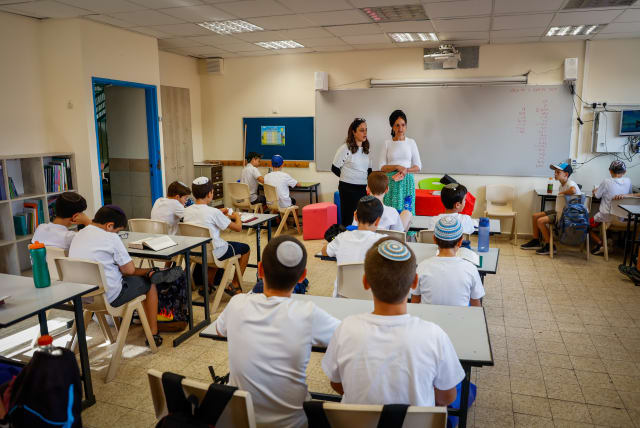Israeli students in severe decline in reading literacy - int'l report

The PIRLS study is conducted every five years and assesses the reading literacy of fourth graders around the world. The most recent one said Israeli students' literacy is declining.
Israeli fourth-graders have been exhibiting a sharp decline in the past seven years in their level of proficiency in their mother tongue, according to a Progress in International Reading Literacy Study (PIRLS) that was published on Tuesday.
The PIRLS study is conducted every five years and assesses the reading literacy of fourth graders around the world. This year’s study included some 200 schools in Israel and tested the kids’ literacy with two texts – a story and a scientific text. The students were given texts in Hebrew or Arabic depending on the schools they attend.
How does Israel compare to the rest of the world?
The results that were published on Tuesday showed that while Israel remains slightly over the global average, it is also closer to the level it was at in 2001 than before COVID-19.
Furthermore, the rate of children with high-level orientation sank by 11% while those with a low level rose by 8%.Following the new results, Israel now ranks at number 30 among the OECD countries.
However, Israel is not alone. The only countries in the report that exhibited improvement were Egypt, Oman, Singapore, Hong Kong and France. The rest lost at least one point with a global average of eight points lost. Israel, in comparison, lost 20.
The report noted that the children in question were in second grade during the first COVID lockdown and in third grade during the second and third lockdowns. It also added that “it’s likely COVID had a significant effect on the results, but it’s important to remember that we cannot measure which changes occurred in accomplishments in that time.”
“The data shows the crisis that the education system is in,” said Education Minister Yoav Kisch. “Our mission is to get the system back on track with an emphasis on outstanding students and helping the grades that were especially harmed by COVID. We have a difficult task and a big responsibility ahead of us.”
The Education Ministry told The Jerusalem Post that a plan will be presented in the near future to address the issue and claimed that Kisch had put an emphasis on outstanding students instead of struggling students because that is what would be helpful to the latter.
“Everyone will be addressed, and as part of the plan, of course, there’s a desire to strengthen the outstanding [students] so that they can continue to succeed, and that’s how you raise the whole system,” the ministry said.
Jerusalem Post Store
`; document.getElementById("linkPremium").innerHTML = cont; var divWithLink = document.getElementById("premium-link"); if (divWithLink !== null && divWithLink !== 'undefined') { divWithLink.style.border = "solid 1px #cb0f3e"; divWithLink.style.textAlign = "center"; divWithLink.style.marginBottom = "15px"; divWithLink.style.marginTop = "15px"; divWithLink.style.width = "100%"; divWithLink.style.backgroundColor = "#122952"; divWithLink.style.color = "#ffffff"; divWithLink.style.lineHeight = "1.5"; } } (function (v, i) { });
